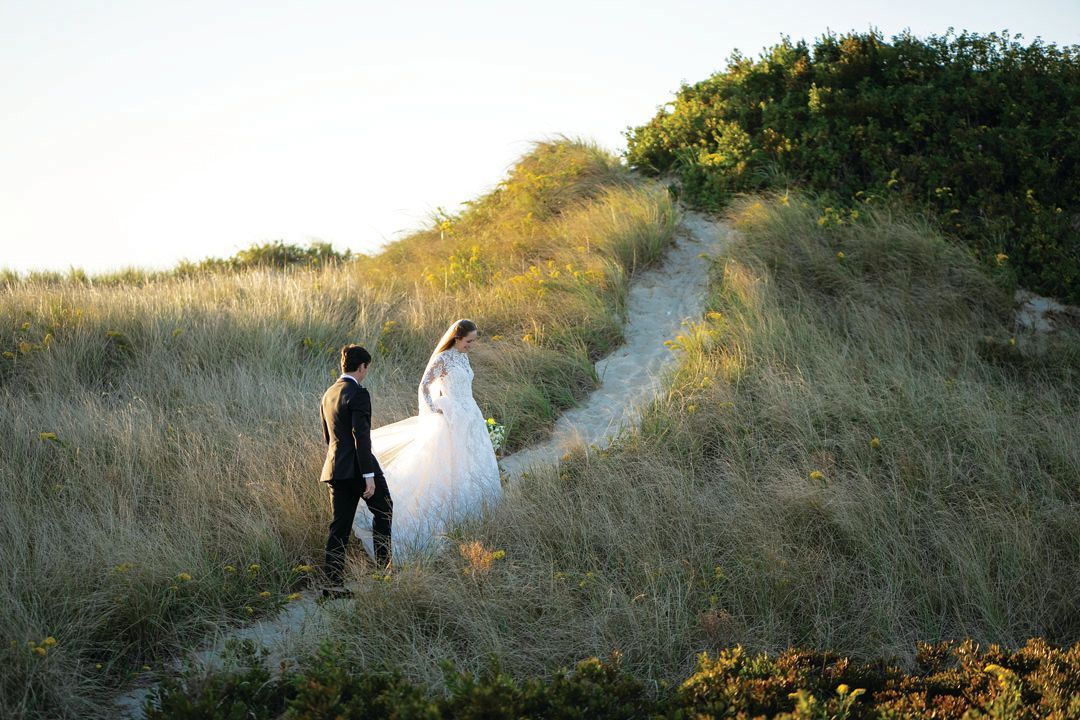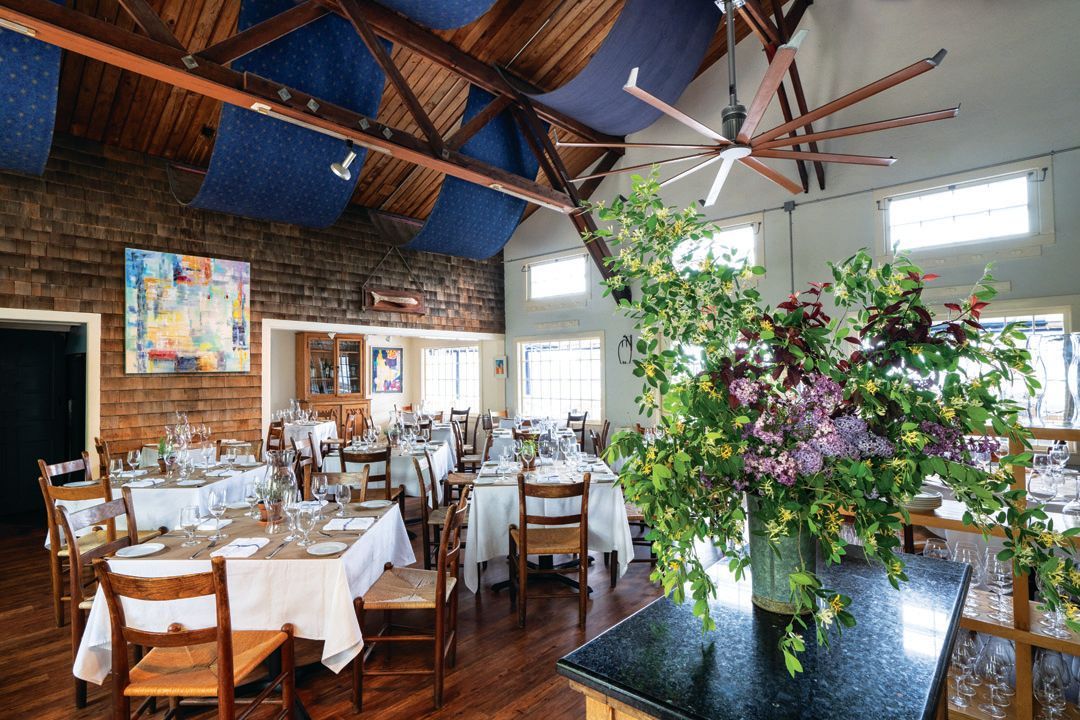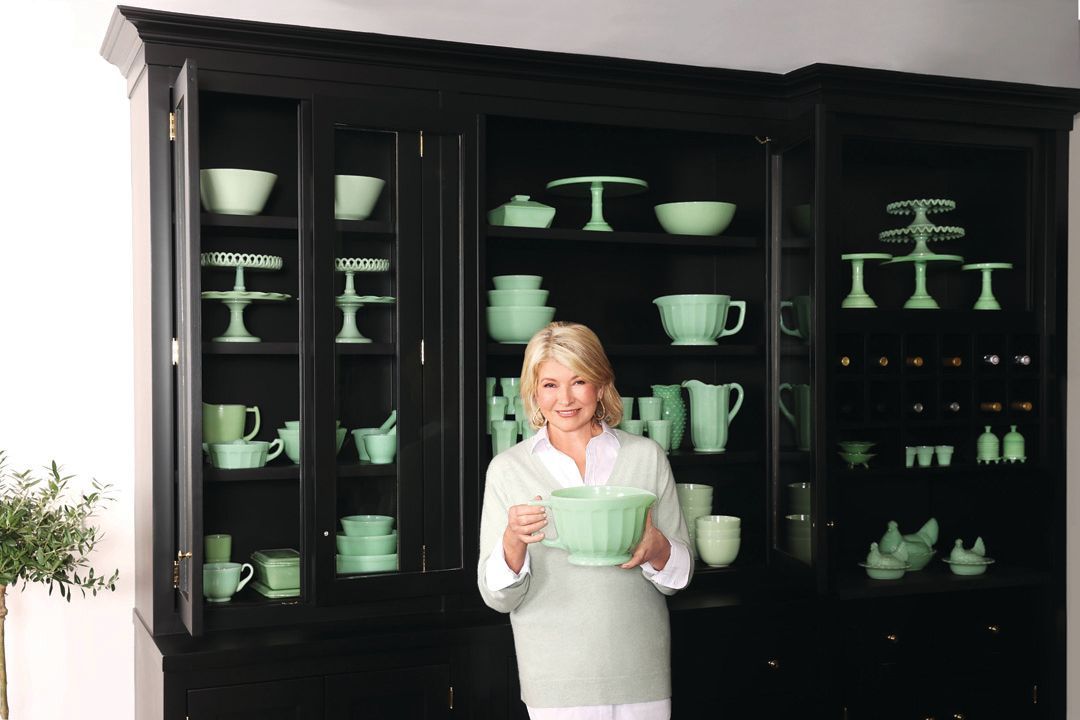MR. GIFFORD GOES TO WASHINGTON
Nantucket summer resident Rufus Gifford serves as the Chief of Protocol in the Biden administration.
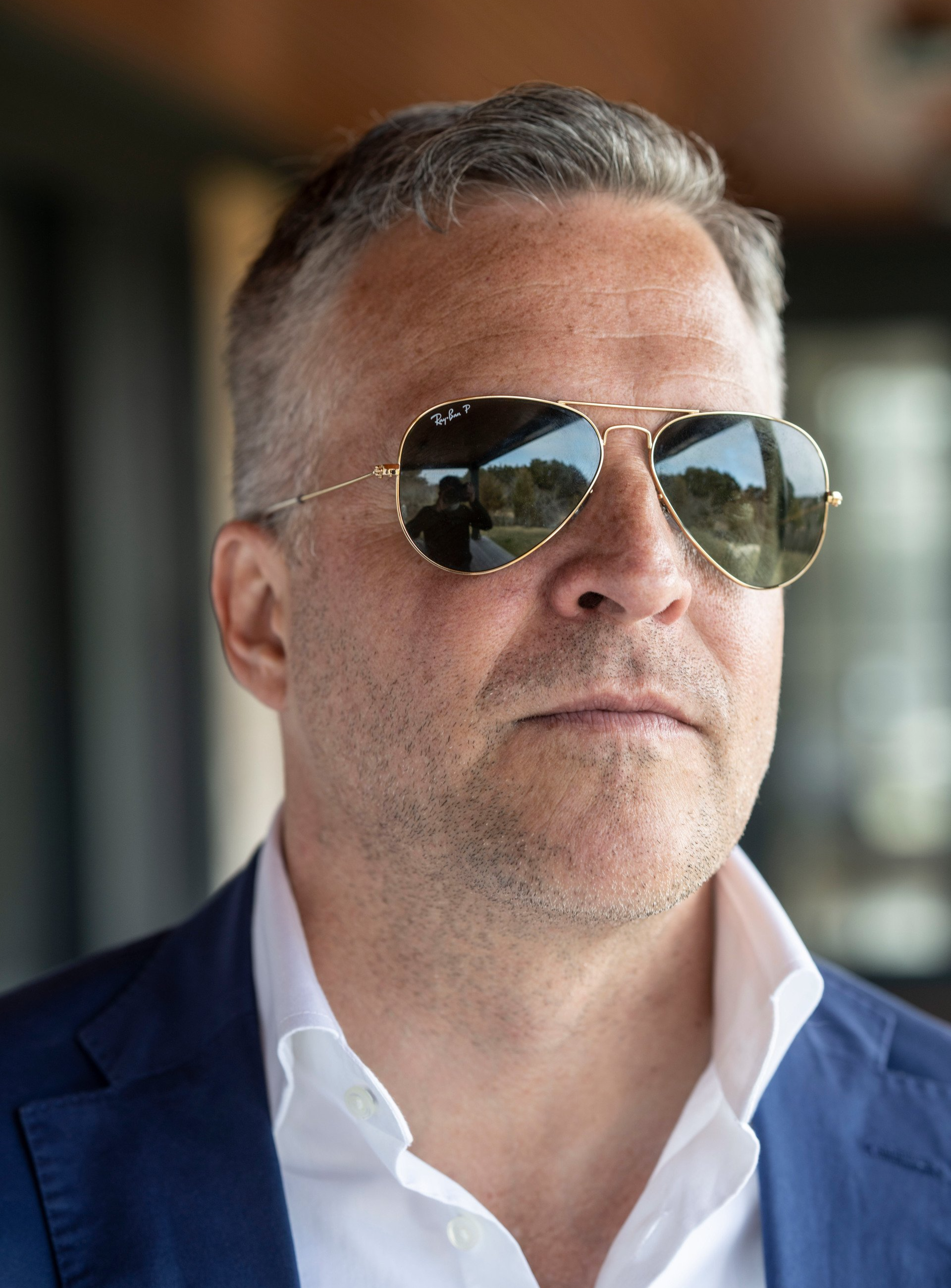
After serving as the Ambassador to Denmark during the Obama administration, summer resident Rufus Gifford served as then-candidate Biden’s deputy campaign manager, during which his base of operations was his home on Nantucket. This winter, Gifford’s effectiveness was recognized by President Biden when he was named Chief of Protocol for the United States.
Established in 1948, the position manages all foreign and domestic diplomatic events and interactions with ambassadors around the world and is critical in presenting the United States in its most favorable light. Working within the State Department, the position requires traveling with the president for all high-level meetings with heads of state as well as being responsible for state dinners at the White House. In the world of diplomacy, nuance can make the difference between success and failure, elevating the role of Chief of Protocol to one of great significance, particularly now.
How is your job going to be influenced by the events in Ukraine?
The work of protocol is advancing and highlighting the work of American diplomacy. In times of global crisis that work is heightened. We’re not the ones who are determining sanctions or next steps. That being said, we had the foreign minister of Ukraine at the State Department. We coordinated and built that trip. We have the prime minister of Finland coming to see the president in the Oval Office. There’s a number of different countries and their leaders that we’ve interacted with since the unprovoked invasion began. Secretary [of State Antony] Blinken, the president, the vice president are working day and night to build these alliances. We’re involved in that every step of the way with the visits and the in-person part. We’re not advancing the policy, but the in-person part is critical.
Putin has inadvertently united the West. How do you feel that this new commonality of interest will affect your job?
I actually think this [unification of the West] took a lot of work, especially considering where we came from. We came out of an administration that questioned the relevance of NATO, questioned our strategic alliances historically, starting with the transatlantic alliance. As it relates to President Biden’s foreign policy, a lot of the focus has been reestablishing those ties with our NATO allies, with our European allies and, of course, our global alliances as well. Secretary Blinken is constantly working these alliances. This is a tireless effort on the part of this administration from top to bottom, from the president, the vice president, the secretary and all of us who have a role in advancing American and Western diplomacy at this time.
Clearly, Putin underestimated the speed with which NATO and the Western alliance has acted. Are you surprised? Short of World War II, has there been a time where countries have coalesced so quickly over a world event?
I don’t like to use the word “surprised” so much, but I have been inspired. As tragic as the events in Ukraine are—and they are tragic—I am certainly inspired to see the West come together and speak with one voice. That is why I supported then-candidate Joe Biden in the first place because of his true ability and his believing in this human side of diplomacy and the ability to sit across the table and have conversations with world leaders and get them to a place of what we see as moral clarity on an issue as obvious as this. The leadership at the highest levels of the U.S. government feels like a righting of the ship from the last several years. The pendulum has swung back to a place of Western leadership, which has kept the world as peaceful and prosperous as it has been since the end of World War II. I’m inspired by that.
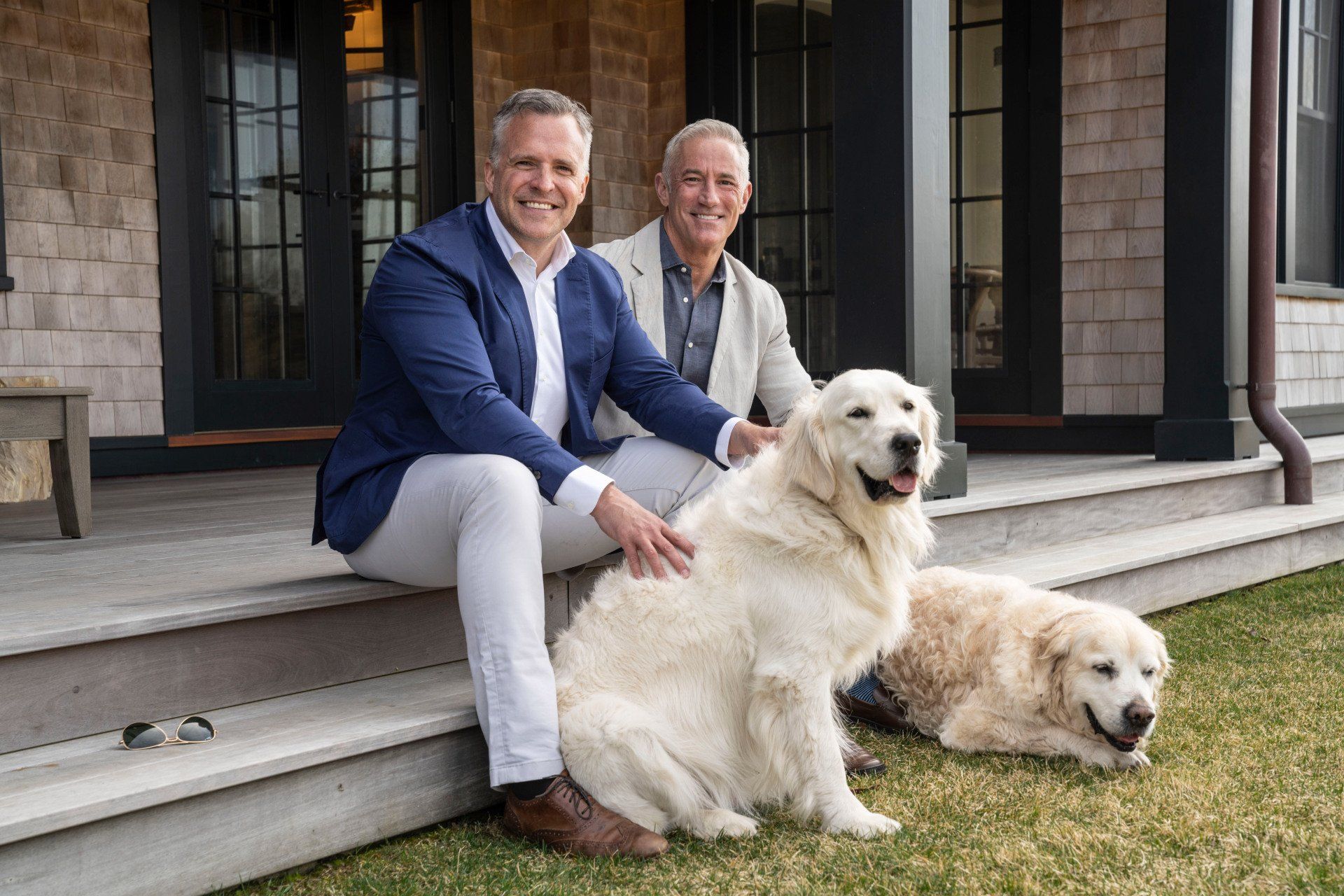
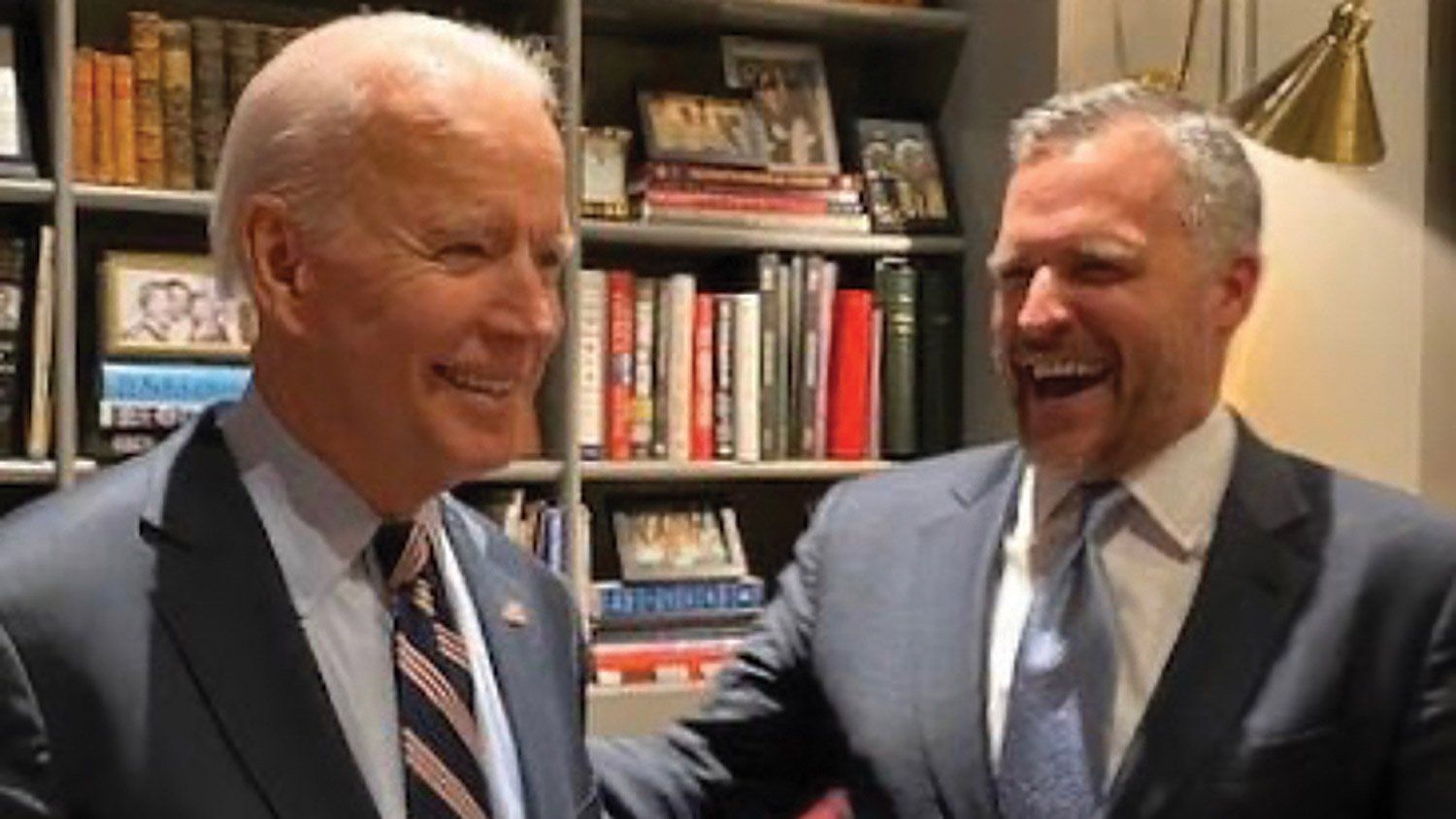
You have spent a lot of time with the president, and you probably know him in ways that other people don’t. He has been in the public eye forever, but what can you tell us about the president that might surprise people?
It’s sort of the opposite of surprising, which makes it surprising. He is every bit as grounded a family man as he projects. The stereotype of Joe Biden as this “Delaware Joe” who rides the Amtrak home to see his young boys—that’s not a stunt. That is grounded in his heart and in his family. And when I went to see him, the first thing he’d do is ask about my parents and my husband. He has rules of his staff that he doesn’t want you to ever miss birthdays, christenings, those kinds of things. That is his core. And so, I think in this increasingly cynical world that we live in, people doubt that. People believe it’s all an act. People have reasons to be cynical about political leaders, but Joe Biden is grounded in that reality. And I think it’s important for people to know that.
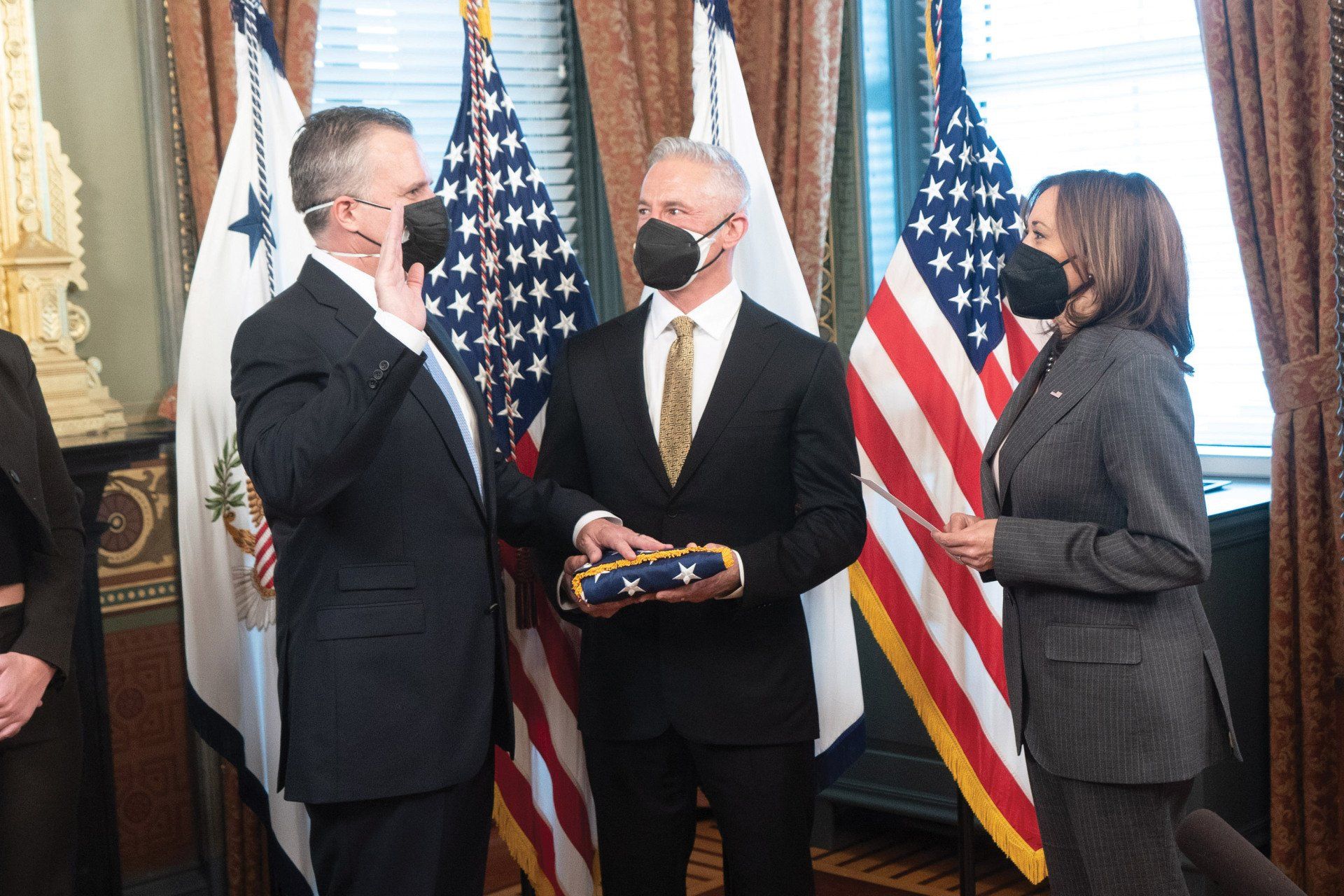
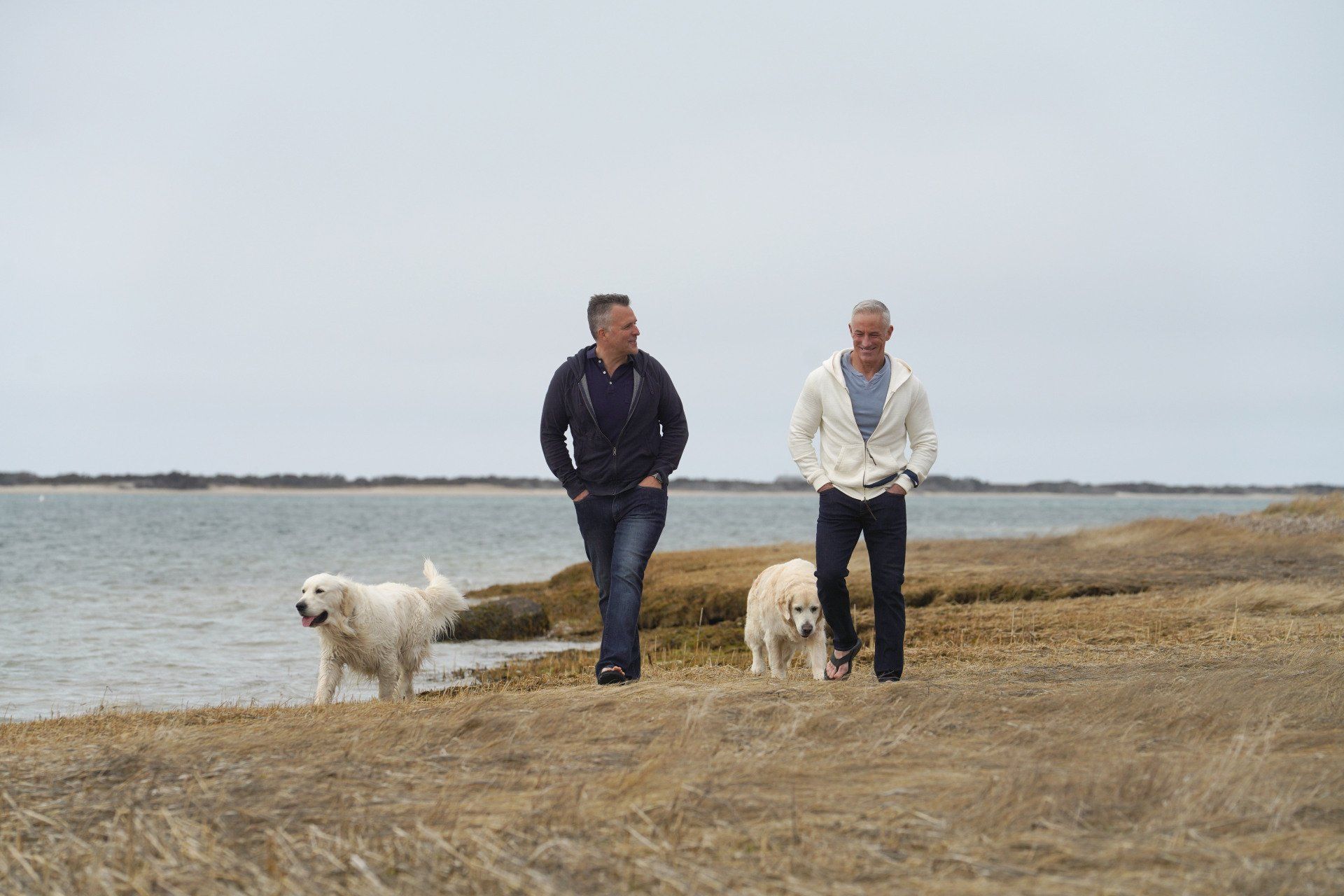
How has your vision of this job changed from the moment the president asked you to now?
I’m a lover of American history. I’m a true believer in the U.S. government doing good for people. That’s why I’ve wanted to come back. I’ve been inspired more than I ever anticipated being because you help create an environment in which diplomacy can thrive. There are issues all over the world. Whether it’s Africa or South America or Asia, there are crises; there are issues. We play a role in every single one of them. We have incredibly competent diplomats working every day. For me, from where I sit, that part is so interesting. You get to see, experience and participate in American global leadership in a way that is impossible not to be inspired by. It’s something that few Americans get to see. People should know that their leaders are spending day and night trying to make the world a better, safer, more peaceful, more prosperous place. That is just fundamentally true.
The eyes of the world are clearly on the United States. What stamp will Rufus Gifford put on our leadership that can help enhance our status as the world’s arbiter of leadership, fairness and everything else that America stands for?
It comes down to two things: dignity and respect. What we want to do is try to create a world where we’re highlighting American global leadership, American diplomacy. From where I sit, we do it with dignity and respect. We do it together with our allies. Like any person, you hope to make a mark and be able to have an impression here. I will work day and night to try to make my role here as successful as possible in supporting the president, supporting the secretary, as well as the rest of the administration.
How is your approach different?
What I want to do is try to tear down the walls a little bit and give people a little bit of faith and trust in these institutions that have existed for a very, very long time. The people in this building who’ve been called “deep state” for a lot of the last several years actually come to work every single day and devote their lives to service to the country. They come to work every day with one purpose and one purpose only, and that’s to work to make American diplomacy better, more prosperous and stronger. I want to be able to show that. That’s what I tried to do as ambassador in Denmark. Let’s see if we can try to tear down those walls and tell a story about American diplomacy that has never been told before.




